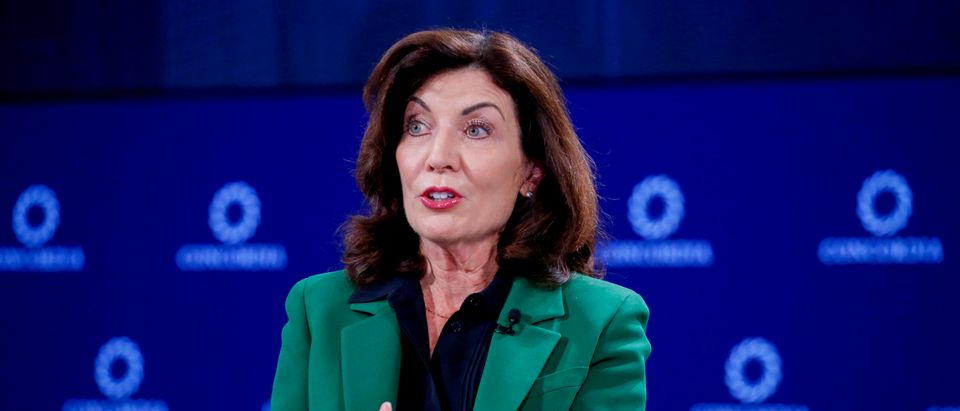A Staten Island Supreme Court judge ruled Tuesday that New York City cannot fire employees for not getting vaccinated against COVID-19, dealing a blow to Democratic Mayor Eric Adams’ pandemic policy.
Justice Ralph Porzio ordered the city to reinstate all fired employees and grant them backpay, citing the fact that being vaccinated against COVID-19 does not stop an individual from catching or spreading the virus, and thus being vaccinated does not grant enough community-wide benefit to warrant a mandate. The health commissioner “acted beyond his authority” by issuing an indefinite vaccine mandate rather than a temporary one, according to the court.
🚨🚨🚨🚨🚨
NY State Supreme Court reinstates all fired unvaccinated employees, orders backpay, says the state violated rights, acted arbitrary & capricious, notes:“Being vaccinated does not prevent an individual from contracting or transmitting Covid-19.”https://t.co/nvOsWfa56S pic.twitter.com/WhH4wje2bQ— Marina Medvin 🇺🇸 (@MarinaMedvin) October 25, 2022
Adams said earlier this year his administration would not bring back workers who had been fired due to being unvaccinated. Roughly 1,400 workers were ultimately let go, including a number of firefighters and police officers. Adams came under fire for not allowing an exception to the mandate for those workers after he granted one to celebrities who were competing in sports or putting on performances in the city.
“States of emergency are meant to be temporary,” the court said in its ruling. “The question presented is whether the health commissioner has the authority to enact a permanent condition of employment during a state of emergency.”
The court ultimately found that the commissioner did not have that right. (RELATED: Vaccine Mandate Protests Explode Across New York City, With Some Chanting ‘F*ck Joe Biden’)
Many COVID-19 vaccine mandates were put in place based on the rationale that the vaccines could drastically reduce the chances of a person becoming infected or transmitting the virus if they were infected, so getting vaccinated was not only a benefit to the individual getting the shots, but everyone around them.
However, as more data emerged to indicate that the vaccines are only marginally effective at stopping spread, particularly against newer variants of the virus, that rationale became less convincing. The Court pointed this out in its decision, saying “being vaccinated does not prevent an individual from contracting or transmitting COVID-19… the Petitioners should not have been terminated for choosing not to protect themselves.”


